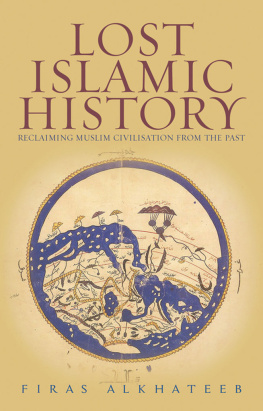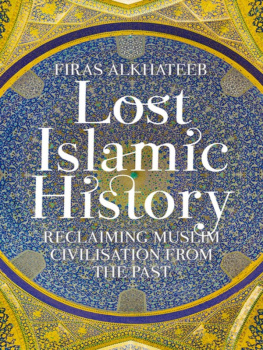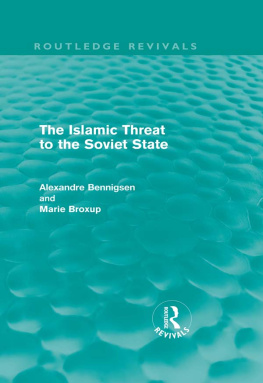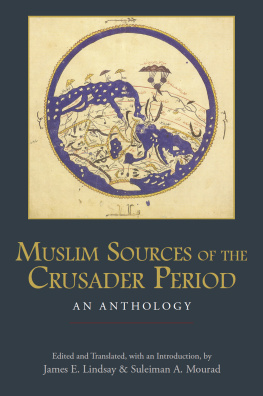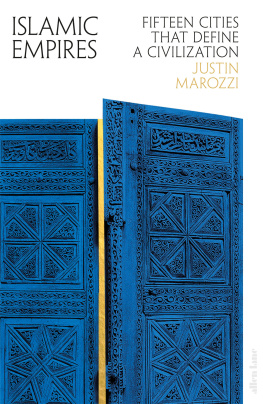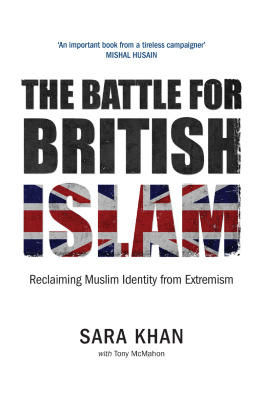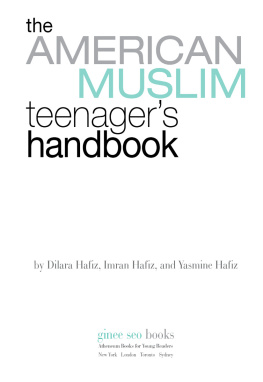Lost Islamic History:
Reclaiming Muslim Civilisation From the Past
Firas Alkhateeb
Hurst Publishers
London
Copyright 2017 by Firas Alkhateeb
All rights reserved. No part of this book may be used or reproduced by any means, graphic, electronic, or mechanical, including photocopying, recording, taping or by any information storage retrieval system without the written permission of the publisher except in the case of brief quotations embodied in critical articles and reviews.
The views expressed in this work are solely those of the author and do not necessarily reflect the views of the publisher, and the publisher hereby disclaims any responsibility for them.
Hurst books may be ordered through booksellers or by contacting:
Hurst Publishers
41 Great Russell St.
London
www.hurstpublishers.com
1-800-Authors (1-800-288-4677)
Because of the dynamic nature of the Internet, any Web addresses or links contained in this book may have changed since publication and may no longer be valid. The views expressed in this work are solely those of the author and do not necessarily reflect the views of the publisher, and the publisher hereby disclaims any responsibility for them.
ISBN: 9781849043977 (sc)
ISBN: 9781849043977 (dj)
ISBN: 9781849043977 (ebook)
Library of Congress Control Number: 2009211798
Hurst Publishers; Revised, Updated Edition (15 November 2017)
Contents
I was born and brought up in a conservative Muslim society. After graduating in India, I moved to the West for furthering my education. Despite my conservative Muslim background, I grew up with a liberal outlook. In my school and university days, my closest friends were Hindus and Sikhs: I felt more comfortable with them as they were more liberal, easy-going and humble with fewer religious scruples. I had wholly given up religious rituals by the time I completed my university studies: they just didnt attract me.
When 9/11 occurred, I had lived in a liberal society for over a decade. I had become consciously convinced that religious ritualsprayers, fasting, pilgrimagewere all meaningless. I should be rewarded, I felt, for working hard, and intelligently, not for aping some wasteful rituals, which brings good to nobody. Non-Muslims were my best friends; shocking my Muslim peers, I ate haraam (prohibited) foods, drank alcohol (in moderation).
Despite the kind of a liberal person I had become, let me be honest that I was not excluded from those Muslims who felt that the 9/11 attacks were justified, although I felt those perished in it died undeserving deaths. Muslim societies universally portray America as a mortal enemy of Islam, particularly for its stance on the Israel-Palestine conflict. Americas mindless support for Israel has been causing terrible oppression and untold sufferings to Palestinian Muslims. There was, undoubtedly, an overriding sense of justification for the 9/11 attacks amongst Muslims; it gave the unjust superpower a bloody nose: I, so little a Muslim, thought that way too.
Weird as it may sound, I still believed in Islam. I thought the terrorists, acting in the name of Islam, were misguided. After 9/11, I slowly started reading about Islam: Quran, Sunnah and Prophet Muhammads biographies; I hadnt read them in the thirty-five years of my life. I was shocked. I had been told all my life that Prophet Muhammad was the ideal human being: most merciful and just; that Islam is the most peaceful religion; and I believed it. But the Quran reads like a manifesto of open-ended war against non-Muslims for converting them or for subjugating them into horribly degraded dhimmi subjects. In his prophetic career, especially during the critical last ten years, Prophet Muhammad was anything but what a peace-loving, merciful and just person stands for.
My curiosity grew. Over the past years, I have done extensive research on Islamic theology as well as on Islamic history: from Prophet Muhammad to modern times. It has been a harrowing tale of forced conversion, brutal imperialism and devastating slavery. Its a saga of great human tragedyall in the name of Islamic holy war or Jihad, the foundational creed of Islam. This tragic tale is the subject of this book.
Firas Alkhateeb
First, I must acknowledge my wifes encouragement and patient sacrifice in the course of this work; without her support, this book would not have been possible.
This work has been based on the works of human and superhuman scholars and authors; most of the credit should go to them. Prominent mention must be made of Allah, the author of the Quran, of al-Bukhari, Abu Muslim, and Abu Dawud, the compliers of prophetic traditions, of Ibn Ishaq and al-Tabari, the authors of prophetic biographies, and of Muhammad Ferishtah, Ibn Battutah, HM Elliot and J Dawson, Jawaharlal Nehru, KS Lal, Giles Milton, Barnard Lewis, VS Naipaul, GD Khosla, PK Hitti, M Umaruddin, Andrew Bostom, RM Eaton, Baharistan-i-Shahi and Aberunis India amongst others.
I am also no less indebted to my friends, namely Abul Kasem, Mohammad Asghar, Syed Kamran Mirza, Sher Khan, Mumin Salih, C Lee, Warner Mackenzie and many others, who have given me tremendous encouragement in the course of this work. Many of them have given me valuable feedback and suggestions. Special thanks go to C Lee for sharing his large collection of books with me, which has been very helpful to my research.
The topics discussed in this work are of universal interest but the historical data presented more extensively from India mainly for two reasons: firstly, a good body of historical information on India is available from the works of contemporaneous scholars; secondly, not to make the book too voluminous. While reading it, readers should bear in mind that the treatment of non-Muslims by Muslim rulers was the mildest in India; elsewhere, it was worse except rare instances (Spain).
There will remain some linguistic errors in this book, which, I hope, will not be too distracting to readers.
Firas Alkhateeb
15 October 2017
one must go on Jihad at least once a year One may use a catapult against them when they are in a fortress, even if among them are women and children. One may set fire on them and/or drown them. [Imam al-Ghazzali, the second greatest scholar of Islam after Muhammad]
In the Muslim community, the holy war is a religious duty, because of the universalism of the (Muslim) mission and (the obligation to) convert everybody to Islam either by persuasion or by force. [Ibn Khaldun, The Muqaddimah, New York, p. 473]
The tragic 9/11 attacks in the United States have dramatically changed the worlda change, which will persist for a long time to come. Indiscriminate violence worldwide by al-Qaeda and like-minded Muslim groups in the name of Jihad or Islamic holy war against the infidels (non-Muslims) has plunged both the Islamic and non-Islamic world into a crisis of security and stability. There is also an ascending tide of puritanical Islamic revivalism among the wider Muslim populace globally. Both these trends pose an unprecedented threat to future security of the secular-democratic nations, both in the West and elsewhere. The violent Jihadi groupsaiming to establish puritanical Islamic rule globally, governed by the Islamic holy law (Sharia)seek to destroy the modernist, secular-democratic and progressive world-order through indiscriminate violence, death, and destruction. The nonviolent puritanical Islamic revivalism, which has a wider appeal amongst Muslims, seeks to achieve the same goal, albeit through different means: through ever-growing demand for the legislation of Sharia and for the gradual suppression of practices and social behaviours in Western societiesfreedom of speech, mixing of opposite sexes, and homosexuality etc.deemed offensive to Islam.


